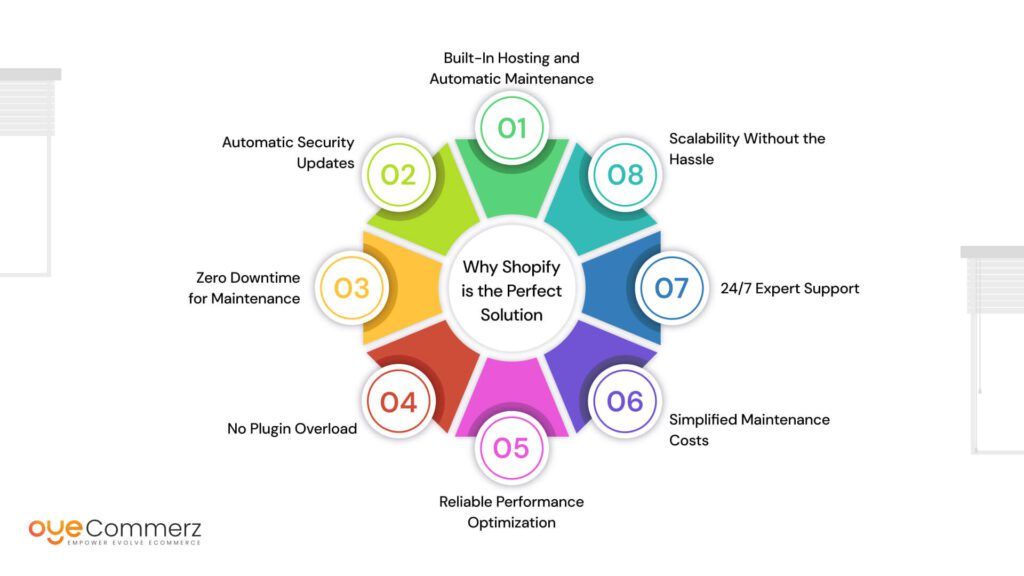In the constantly changing world of online retail, picking the optimal platform is essential for your business's prosperity. If you’re currently using WordPress and thinking about a migration to Shopify, you’re not alone. Many businesses are making this transition to leverage Shopify’s robust tools, simplicity, and scalability. This guide will walk you through the steps of migrating from WP to this platform effortlessly, making sure that you unlock your eCommerce potential.
Why Transition from WP to Shopify?
Prior to starting the migration process, it’s important to understand why this shift can be advantageous for your online store:
Accessible Tools: Shopify features an user-friendly dashboard that makes easier store handling, allowing for non-technical users.
Growth Potential: As your brand develops, Shopify can accommodate higher visitors and transactions without compromising speed.
Built-in Tools: Shopify includes pre-installed features for search engine optimization, analytics, payment management, and additional functionalities, reducing the requirement for multiple plugins.
Enhanced Security: With Shopify, you get access to advanced security features that safeguard sensitive customer data.
Steps for a Effortless Migration
Migrating your online store from WP to Shopify includes several steps.
Here’s how to ensure a hassle-free transition:
Prepare Your Migration Approach
Start by outlining your migration plan. Identify which components of your present site you plan to transfer, such as:
Inventory information
Client data
Order history
Posts
Select the Right Migration Solution
Based on your preferences, choose a migration service that Shopify launch checklist fits your store. OyeCommerz offers several options:
Basic Migration Package: Ideal for compact stores with minimal products.
Mid-Tier Plan: Appropriate for mid-range businesses with intermediate requirements.
Premium Migration Package: Best for high-volume stores needing extensive customization.
Save Your Data
Before starting Shopify scalability benefits the migration, ensure that you have a comprehensive backup of your WordPress site. This action is essential in situations where anything goes off track during the move.
Extract Your Content from WordPress
Leverage plugins or alternative solutions to transfer critical information from your WP site:
Inventory
Clients
Transactions
Articles
Import Content into Shopify
Once you have your data extracted, employ Shopify’s import tools or external apps to upload your content into your new store. Ensure that all information is accurately formatted and aligned.
Adapt Your Shopify Store
Following uploading data, tailor your Shopify platform’s design to align with your brand identity. Think about hiring a developer if you require complex customization.
Set Up Payment Gateways and Logistics
Set up payment gateways and shipping settings in Shopify to ensure a smooth purchase experience for customers.
Implement SEO Standards
To keep your online visibility during the transition:
Set up 301 redirects from old URLs to updated ones.
Refresh metadata.
Enhance visual content and copy for search engines.
Review Your New Shop
Prior to going live, completely check your Shopify site. Check for any broken links, checkout failures, or untransferred content.
Go Live Your Platform
Once everything is in order, it’s the opportunity to go live! Inform the update to your clients and encourage them to discover the enhanced offerings of your Shopify store.
Post-Migration Support
Even after publishing your Shopify store, ongoing assistance is key. Consider working with service providers who can help with:
Site maintenance
Customer engagement
Improvement strategies
Conclusion
Migrating from WordPress to Shopify can be a transformative move for your eCommerce. By following this guide and leveraging experts like those offered by OyeCommerz, you can ensure a smooth transition that boosts your business potential. Adapt to the shift and unlock the potential of Shopify today!
